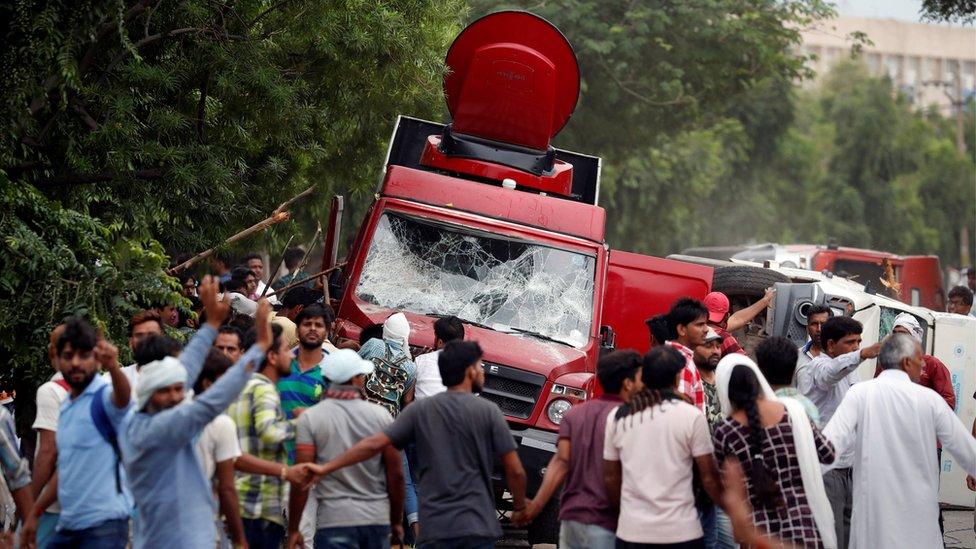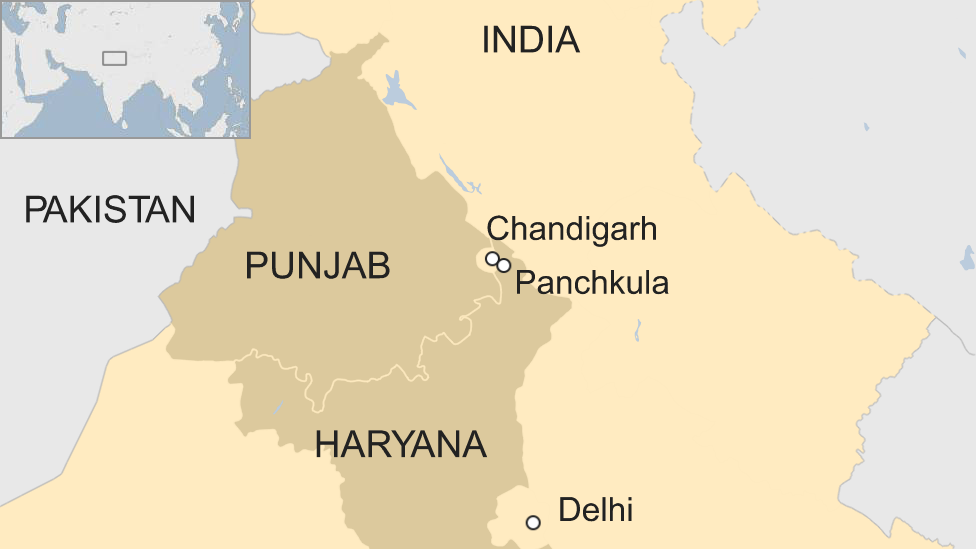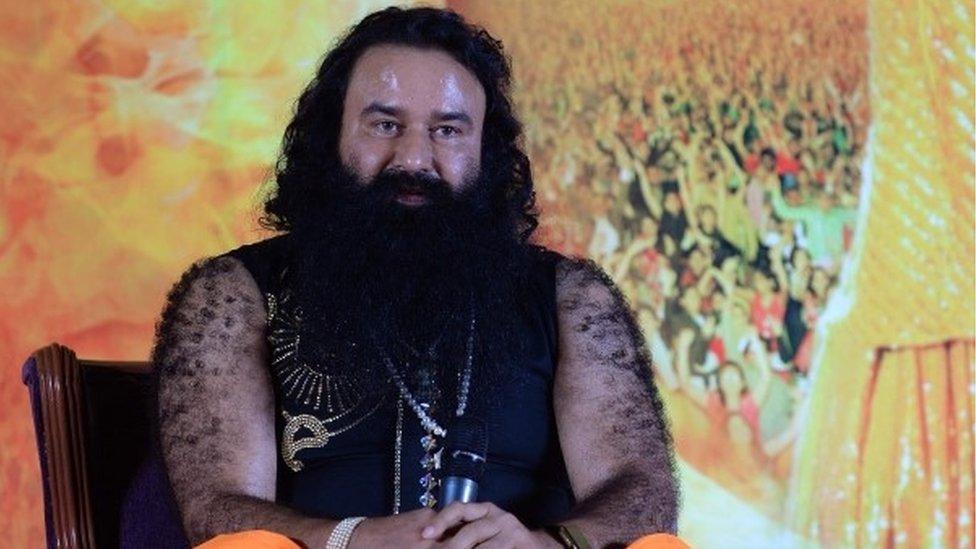India guru rape case: 23 die in unrest as Ram Rahim Singh convicted
- Published
Violent clashes have taken place in Panchkula (footage by Sudeep Sachdeva)
At least 23 people have been killed in violent protests over the rape conviction of a popular religious leader in north India.
The victims are believed to be Gurmeet Ram Rahim Singh's followers. Angry supporters rampaged through Panchkula town, near Chandigarh.
About 2,500 of Singh's followers have been arrested, police said.
Earlier, his devotees smashed cars and set media vans alight, saying he was innocent.
More than 200,000 of his followers had flocked to the Chandigarh area ahead of Friday's verdict.
Violence has spread to Delhi, as Justin Rowlatt reports
Singh, who says he has millions of disciples, was found guilty of raping two women at the headquarters of his sect, known as Dera Sacha Sauda, in 2002.
Thousands of army, police and paramilitary forces were deployed. They fired tear-gas canisters and water cannon into the crowd to try to restore control, says the BBC's Ravinder Singh Robin in Panchkula.
However, the region's police chief BS Sandhu said the violence was now under control.

Crowds smashed television trucks in Panchkula after the verdict
Curfews have been imposed in several areas of Chandigarh city and across the state of Punjab, and internet services were suspended.
Violence also spread to the capital, Delhi, where two train coaches were set on fire, according to reports.
Singh, 50, was taken into protective custody by the army following the conviction.
The court is expected to sentence him on Monday.

Who is Gurmeet Ram Rahim Singh?

Controversial leader of the Dera Sacha Sauda sect, which claims to have 60 million followers around the world
Took over the sect - which describes itself as "a non-profit social welfare and spiritual organisation" - when he was 23
Performs at rock concerts, acts in films and even has his own line of food products
Known as "rockstar baba" and "guru of bling" because of his shiny, colourful clothes
Has been accused of mocking Sikh and Hindu figures
Has been investigated for murder and rape, charges he denies
Has been accused of forcing followers to undergo castration to "get closer to god"
Read more:

Punjab Chief Minister Amarinder Singh criticised his counterpart in the state of Haryana for allowing so many of Singh's followers to travel to Chandigarh.
Chandigarh is the capital of both states. The border between the two states has been sealed.
Singh had arrived at court in Panchkula, near Chandigarh, from his ashram in Haryana in a convoy of more than 100 vehicles.
Schools and offices in the area were closed, trains were stopped, roads were blocked and three stadiums were set aside as makeshift prisons in case of trouble, officials said.

- Published25 August 2017

- Published25 August 2017
- Published10 February 2016
- Published19 November 2014